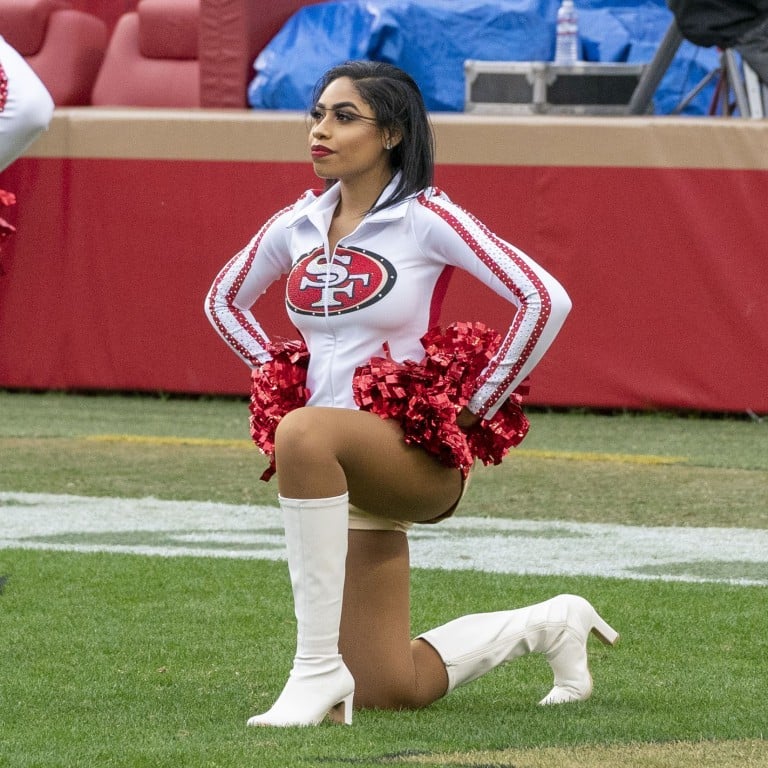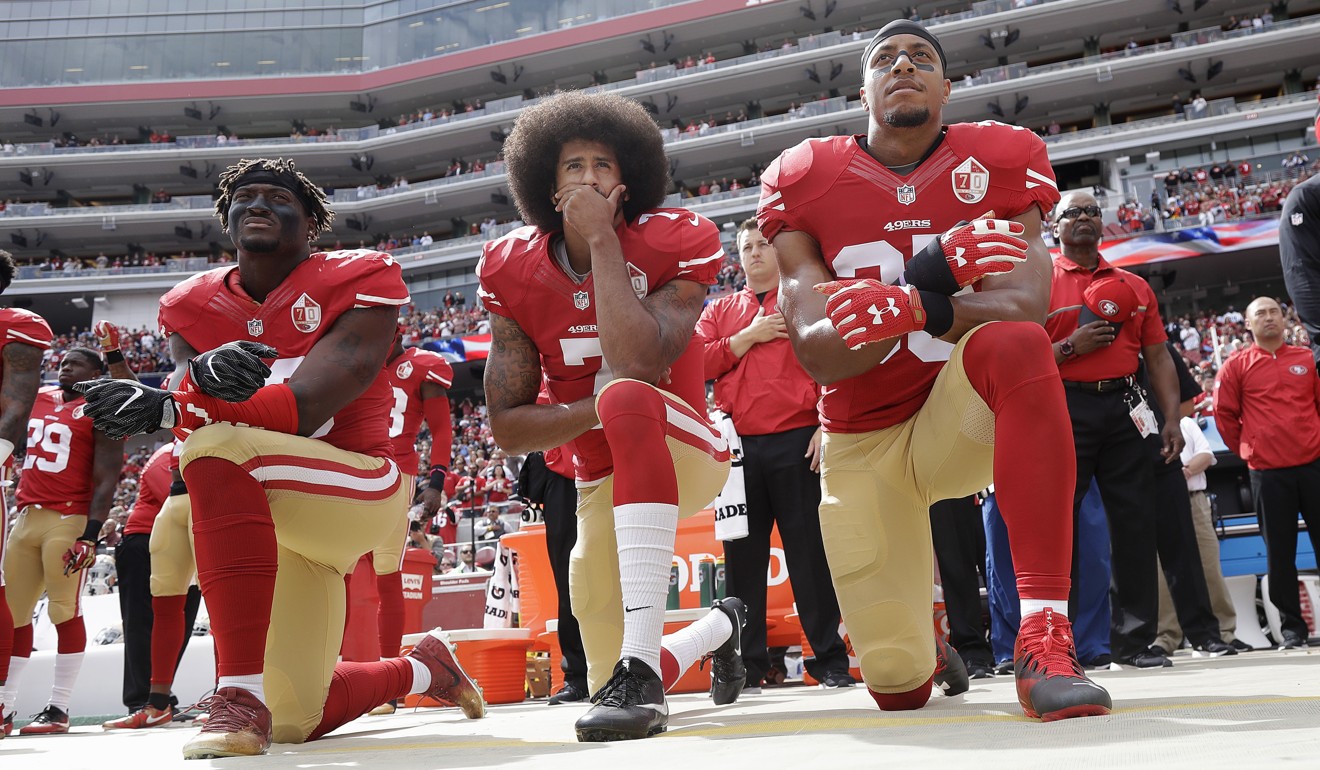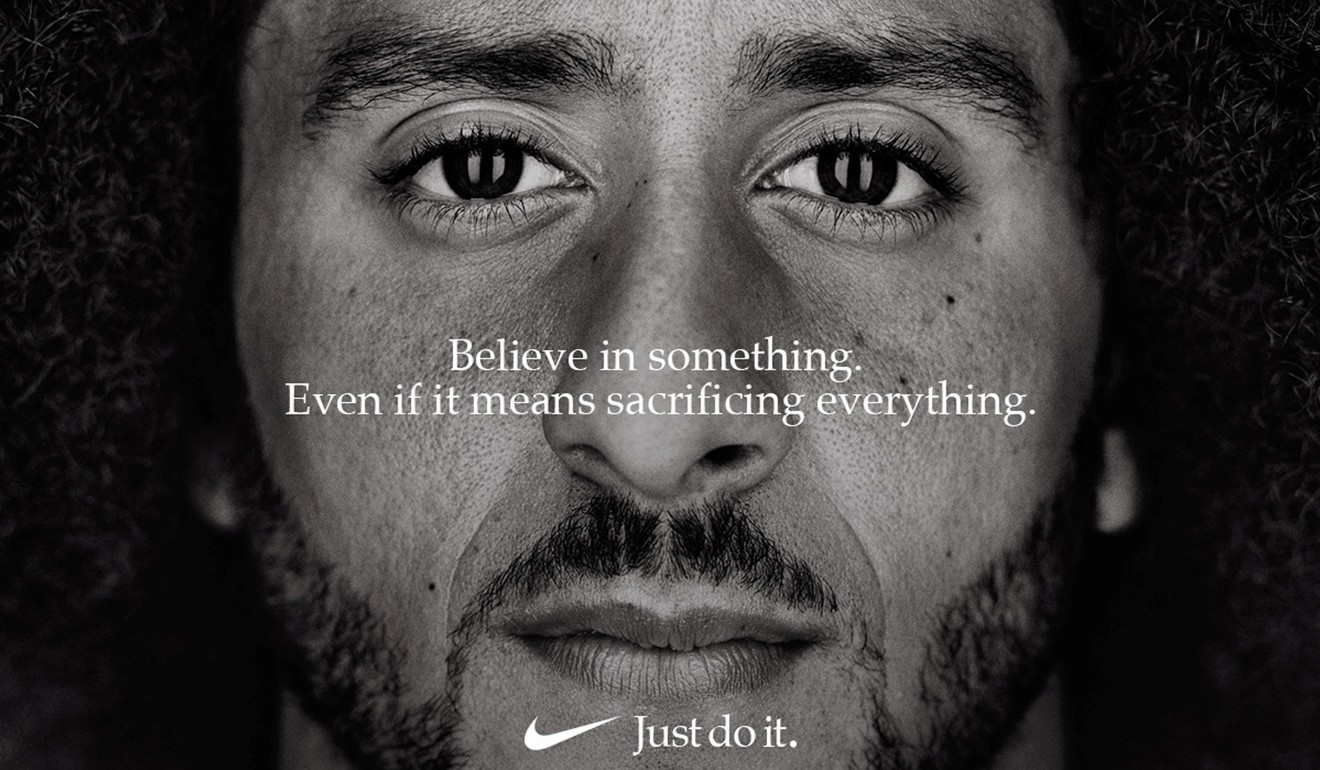
A national anthem debate led America to reaffirm freedom of speech. Hong Kong should take note
- Jason Buhi says the US found strength in diversity amid the soul-searching inspired by NFL players’ refusal to stand during the national anthem
- Hong Kong legislators who will soon consider a bill making it a crime to disrespect the Chinese national anthem should consider the consequences of such a law
The 49ers, taken by surprise, quickly issued a statement: “In respecting such American principles as freedom of religion and freedom of expression, we recognise the right of an individual to choose and participate, or not, in our celebration of the national anthem.”
The organisation was correct. No law requires American citizens to take particular action during the playing of their national anthem. According to the United States Code, any person present during the playing or singing of the anthem “should” stand at attention with their right hand over their heart. There are no penalties for non-compliance.

More players knelt. A national debate ensued, with opinions coming from the highest levels of American government and society.
In 2016, then president Barack Obama welcomed the national dialogue, saying “I’d rather have young people who are engaged in the argument and trying to think through how they can be part of our democratic process than people who are sitting on the sidelines not paying attention at all.”
Supreme Court Justice Ruth Bader Ginsburg first called the protest “dumb and disrespectful”, though affirming the athletes’ right to protest, but later expressed regret for her comments, saying they were “inappropriately dismissive and harsh”.
Donald Trump has been critical of the protest, both as a presidential candidate and as president, saying during political rallies in 2017 that football players who kneel during the national anthem ought to be fired by team owners (none have been).

The issue shone a light on Americans’ cherished free speech protections and established common law precedents.
In the 1943 case of West Virginia State Board of Education vs Barnette, the Supreme Court held that the free speech clause of the US Constitution’s First Amendment protects students from being forced to salute the American flag or recite a patriotic poem known as the Pledge of Allegiance at the beginning of the school day.
As Justice Robert H. Jackson wrote for the court, “Probably no deeper division of our people could proceed from any provocation than from finding it necessary to choose what doctrine and whose programme public educational officials shall compel youth to unite in embracing ... It seems trite but necessary to say that the First Amendment to our Constitution was designed to avoid these ends by avoiding these beginnings.”
Later, in Texas vs Johnson in 1989, the court overturned Texas’ conviction of a young communist for publicly burning an American flag while protesting against government policies.
Distasteful as they found that behaviour, Justice Anthony Kennedy acknowledged that the “hard fact is that sometimes we must make decisions we do not like. We make them because they are right, right in the sense that the law and the Constitution, as we see them, compel the result.”
Of course, the difference in the American and mainland Chinese positions reflects a broader philosophical disagreement.
Believing people to be the best judges of their own needs, the classic liberal tradition maximises individual freedom.
The authoritarian position asserts that people may be mistaken about their own best interests, so the state has a positive role in inculcating proper desires.
In reflecting the latter position, the new draft legislation in Hong Kong threatens to add dissonance between the city’s legal order and international human rights law.
The Universal Declaration of Human Rights recognises freedom of speech, while the International Covenant on Civil and Political Rights elaborates on that theme, stating that “freedom to manifest one's religion or beliefs may be subject only to such limitations as are prescribed by law and are necessary to protect public safety, order, health, or morals or the fundamental rights and freedoms of others”.
The need to protect public safety, order, health, and morals was exactly the argument proffered by the state of Texas, and ultimately rejected by the US Supreme Court, in Texas vs Johnson.
Americans and others have found strength in diversity of opinion. Though many find Kaepernick’s act distasteful, most Americans would agree with the famous adage attributed to Voltaire: “I may disapprove of what you say, but I will defend to the death your right to say it.”
The events that followed challenged Americans to reexamine their presuppositions on criminal justice practices, race relations, and the meaning of patriotism.
Though these issues remain at the end of the day, the episode has reaffirmed the national commitment to freedom of speech.
Rather than vote along party lines, members of Hong Kong’s Legislative Council should seriously consider what positive benefits to society they may risk foreclosing during the debate ahead.
Jason Buhi teaches constitutional law at the Barry University Dwayne O. Andreas School of Law in Orlando, Florida

